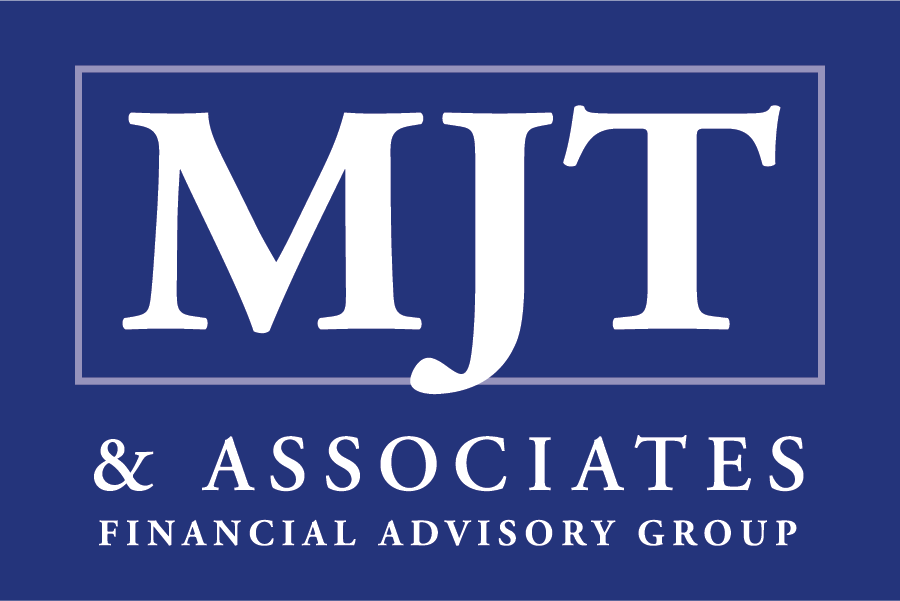Are you looking to build wealth and keep more of your hard-earned money? Financial and tax planning are essential tools that can help you achieve these goals. By implementing effective strategies, you can maximize your savings, reduce your tax liabilities, and secure a more stable financial future for yourself and your loved ones.
In today's complex financial landscape, proper planning is more crucial than ever. Tax laws and regulations are constantly evolving, and without a solid understanding of these changes, you may be missing out on valuable opportunities to minimize your tax burden. Moreover, a well-crafted financial plan can help you make informed decisions about investments, retirement savings, and estate planning, all of which contribute to long-term financial success.
The benefits of comprehensive financial and tax planning extend far beyond just saving money on your annual tax bill. By taking a proactive approach, you can create a roadmap for achieving your financial goals, whether that's buying a home, funding your children's education, or enjoying a comfortable retirement. Additionally, effective planning can provide peace of mind, knowing that you're prepared for unexpected financial challenges and have a clear path toward your desired financial future.
In this article, we'll explore 10 essential financial and tax planning tips that can help you maximize your wealth and minimize your tax burden. From setting clear financial goals and understanding tax laws to utilizing tax-efficient investment strategies and seeking professional guidance, these tips will equip you with the knowledge and tools you need to take control of your financial destiny. By implementing these strategies, you'll be well on your way to achieving greater financial security and building lasting wealth for years to come.
Setting Financial Goals and Understanding Tax Laws
Setting clear financial goals is the foundation of effective financial and tax planning. Start by defining both short-term and long-term objectives, such as building an emergency fund, saving for a down payment on a home, or planning for retirement. These goals will serve as guideposts for your financial decisions and help you prioritize your resources. Remember to make your goals SMART: Specific, Measurable, Achievable, Relevant, and Time-bound. This approach will provide you with a clear roadmap and increase your chances of success.
Understanding current tax laws and regulations is crucial for minimizing your tax burden and maximizing your wealth. Tax codes can be complex and are subject to frequent changes, so it's essential to stay informed. Familiarize yourself with key concepts such as tax brackets, deductions, and credits that apply to your specific situation. Pay attention to annual updates from the IRS and consider how changes in tax laws might affect your financial strategy. By staying informed, you'll be better equipped to make tax-efficient decisions throughout the year, not just during tax season.
Maximizing tax deductions and credits is an effective way to reduce your overall tax liability. Common deductions include mortgage interest, charitable contributions, and state and local taxes, while credits like the Child Tax Credit or education credits can directly reduce your tax bill. Keep detailed records of your expenses and potential deductions throughout the year to ensure you don't miss any opportunities to lower your taxable income. Additionally, consider strategies such as bunching deductions in certain years to exceed the standard deduction threshold or contributing to tax-advantaged accounts like Health Savings Accounts (HSAs) or 529 college savings plans. By strategically leveraging available deductions and credits, you can significantly reduce your tax burden and keep more of your hard-earned money working for you.
Investment Strategies and Retirement Planning
Implementing tax-efficient investment strategies is crucial for maximizing your wealth and minimizing your tax burden. One effective approach is to take advantage of tax-advantaged retirement accounts such as 401(k)s and Individual Retirement Accounts (IRAs). These accounts offer significant tax benefits, allowing your investments to grow tax-deferred or even tax-free in the case of Roth accounts. By maximizing your contributions to these accounts, you can reduce your current taxable income while building a substantial nest egg for retirement.
Another tax-efficient investment strategy to consider is the use of municipal bonds. These bonds, issued by state and local governments, typically offer interest payments that are exempt from federal income tax and, in some cases, state and local taxes as well. While municipal bonds may offer lower yields compared to taxable bonds, their tax-free status can result in a higher after-tax return for investors in higher tax brackets. Additionally, incorporating a mix of growth-oriented and dividend-paying stocks in taxable accounts can help you benefit from lower long-term capital gains tax rates and qualified dividend tax rates.
When it comes to retirement planning, it's essential to consider the tax implications of different strategies. For example, diversifying your retirement savings across accounts with varying tax treatments (such as traditional IRAs, Roth IRAs, and taxable accounts) can provide flexibility in managing your tax burden during retirement. This approach allows you to strategically withdraw funds from different accounts based on your income needs and tax situation each year. Additionally, consider the potential benefits of Roth conversions, which involve paying taxes on traditional IRA funds now to enjoy tax-free withdrawals in retirement. This strategy can be particularly advantageous if you expect to be in a higher tax bracket during retirement or if you want to reduce the impact of required minimum distributions (RMDs) on your future tax liability.
By carefully considering these tax-efficient investment strategies and retirement planning options, you can significantly enhance your long-term financial well-being. Remember that the most appropriate strategies will depend on your individual circumstances, including your current tax situation, investment goals, and retirement timeline. As you implement these approaches, it's crucial to regularly review and adjust your strategies to ensure they remain aligned with your evolving financial objectives and the changing tax landscape.
Estate Planning, Regular Reviews, and Professional Guidance
Estate planning is a crucial component of comprehensive financial and tax planning, particularly when it comes to minimizing inheritance tax and ensuring your assets are distributed according to your wishes. By creating a well-structured estate plan, you can potentially reduce or eliminate estate taxes, protect your assets, and provide for your loved ones after you're gone. Consider strategies such as setting up trusts, gifting assets during your lifetime, and utilizing life insurance policies to help manage potential estate tax liabilities. It's important to work with an experienced estate planning attorney to ensure your plan is tailored to your specific situation and complies with current laws and regulations.
Regularly reviewing and updating your financial and tax plans is essential for maintaining their effectiveness over time. As your life circumstances change, tax laws evolve, and economic conditions fluctuate, your strategies may need to be adjusted to remain optimal. Set aside time at least annually to review your financial goals, investment portfolio, tax strategies, and estate plan. This periodic reassessment allows you to identify areas that may need modification and ensure your plans continue to align with your long-term objectives. By staying proactive and making necessary adjustments, you can maximize the benefits of your financial and tax planning efforts.
While it's possible to manage your finances and taxes independently, working with a qualified financial advisor or tax professional can provide significant advantages. These experts bring specialized knowledge, experience, and insights that can help you make more informed decisions and avoid costly mistakes. A financial advisor can assist in developing a comprehensive financial plan, optimizing your investment strategy, and navigating complex financial decisions. Similarly, a tax professional can help you stay compliant with tax laws, identify opportunities for tax savings, and provide valuable guidance on tax-efficient strategies. The expertise and personalized advice offered by these professionals can often lead to improved financial outcomes that far outweigh the cost of their services.
By implementing these essential financial and tax planning tips, you can set yourself on a path to greater financial success and security. Effective planning allows you to take control of your financial future, minimize your tax burden, and build lasting wealth. Remember that financial and tax planning is an ongoing process that requires attention, dedication, and periodic adjustments. By staying informed, seeking professional guidance when needed, and regularly reviewing your strategies, you can navigate the complex financial landscape with confidence and work towards achieving your long-term financial goals.











